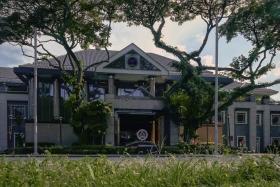Singapore ranks ninth in UN’s Human Development Index
Singapore has come in ninth on the latest United Nations Human Development Index, which uses indicators such as life expectancy and education to gauge a country's level of development.
But it slid 14 spots when the index was adjusted for inequality, with the Republic faring particularly badly when it came to inequality in education and income levels.
In comparison, Hong Kong, which tied Germany for fourth place, slid 17 spots after adjusting for inequality. Germany slid seven spots.
Singapore scored 11 per cent for inequality in education, far below the 1.9 per cent from top scorer Switzerland.
Its income inequality also measured in at 25 per cent, compared with Iceland's 11.7 per cent.
The closer to zero a country scores, the closer to perfect equality it has achieved.
The UN Human Development Report was released on Monday.
"What used to be 'nice-to-haves', like going to university or access to broadband, are increasingly important for success," said Mr Pedro Conceicao, director of the Human Development Report Office at the UN Development Programme.
"But left with only the basics, people find the rungs knocked out of their ladder to the future."
Norway topped this year's index, followed by Switzerland and Ireland. Germany and Hong Kong tied for fourth place, while Australia and Iceland tied for sixth.
The top 10 list was rounded up by Sweden, Singapore and the Netherlands. Singapore also came in ninth last year.
PERENNIAL ISSUE
On Singapore's index score for income inequality, Singapore University of Social Sciences Associate Professor Walter Theseira said: "I think we know this is a perennial issue - that income inequality can be substantial in Singapore."
But he also pointed out that income inequality is not completely correlated with quality of life or other human development indicators.
He added that one dimension of income inequality often seen in cities such as New York and London is the divide between global elite and the city's ordinary residents.
This exists in Singapore as well and a comparison would be useful, he said.
Dr Theseira also said Singapore's poor showing on inequality in education is likely to be explained by the fact that older Singaporeans have had very little formal schooling compared to younger ones.
Get The New Paper on your phone with the free TNP app. Download from the Apple App Store or Google Play Store now


